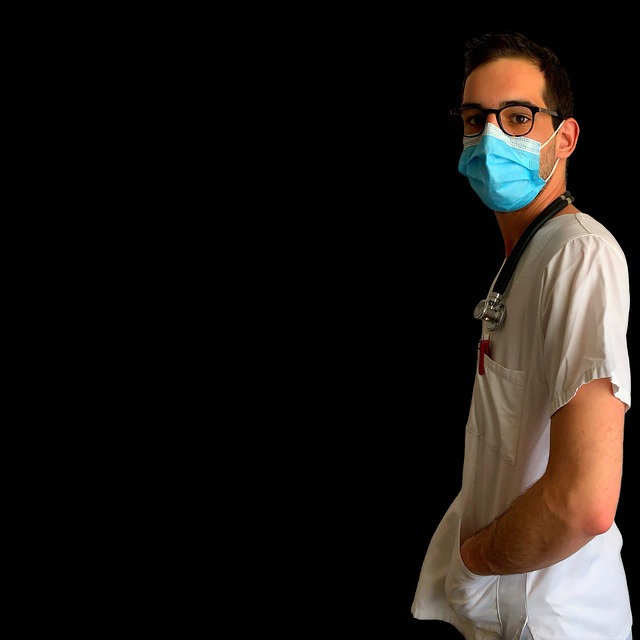Effective communication through translation services for Physician’s Treatment Plans UK is vital to overcome language barriers and cultural differences in diverse healthcare settings. Specialized medical translators ensure complex medical information is accurately translated into simple, accessible language, improving patient comprehension, adherence, and health outcomes. Best practices include using expert human translators, standardized terminologies, peer review, and regular updates to prevent medical errors and enhance patient care.
In today’s diverse healthcare landscape, effective communication between physicians and patients from varied linguistic backgrounds is paramount. Mistranslations in treatment plans can lead to adverse outcomes, emphasizing the critical need for clarity in medical correspondence. This article delves into the complexities of translating physician treatment plans in the UK, a service increasingly recognized as essential to ensuring patient safety and high-quality care. We explore best practices and innovations in translation services, highlighting their pivotal role in bridging the communication gap and fostering inclusive healthcare delivery.
- Understanding Cross-Cultural Communication in Healthcare
- The Role of Language Services in Medical Practice UK
- Accurate Translation: A Cornerstone for Patient Safety
- Navigating Terminology: Standardizing Medical Jargon
- Enhancing Care: Culture-Sensitive Treatment Plans
- Ethical Considerations in Physician’s Treatment Plan Translation
- Best Practices: Ensuring Quality and Consistency in UK Services
Understanding Cross-Cultural Communication in Healthcare

Effective communication is paramount in healthcare, especially when translating complex medical information. In the UK, where a diverse patient population seeks treatment, ensuring clarity in physician’s treatment plans through robust cross-cultural communication is essential. Misunderstandings can lead to adverse outcomes, so specialized translation services for physicians’ treatment plans are invaluable.
Healthcare professionals often face challenges when communicating with patients from different cultural backgrounds. Language barriers, differing medical traditions, and unique perspectives on health all contribute to potential complexities. For instance, a study by the Royal College of Physicians found that language difficulties in healthcare led to delays in diagnosis and treatment for up to 40% of non-English speaking patients in the UK. This highlights the critical need for accurate and culturally sensitive translation services.
Translation services tailored for physician’s treatment plans should employ professional medical translators who understand both the medical terminology and cultural nuances. They must be adept at conveying complex medical concepts accurately while adapting language to suit different audiences. For example, when translating a treatment plan from English to another language, the translator should avoid using jargon that might be unfamiliar to patients from non-medical backgrounds. Instead, they should opt for simple, clear language that enhances comprehension. By integrating these strategies, healthcare providers can ensure patients fully understand their treatment plans, leading to better adherence and improved health outcomes.
The Role of Language Services in Medical Practice UK

In the UK, ensuring clarity in translated physician’s treatment plans is paramount for effective patient care. Language barriers pose significant challenges, with up to 10% of the population having limited English proficiency (LEP). Translation services for Physician’s Treatment Plans UK play a pivotal role in overcoming these hurdles. Specialized medical translators are essential in interpreting complex healthcare terminology accurately, ensuring patients receive consistent and understandable care regardless of their linguistic background.
For instance, consider a scenario where a non-English speaking patient is diagnosed with a rare condition. Accurate translation services can convey this critical information to the patient, enabling them to actively participate in decision-making about their treatment. A study by the Royal College of Physicians found that effective communication improved patient satisfaction and adherence to treatment plans, leading to better health outcomes. Translation services must be integrated into clinical workflows seamlessly to facilitate such positive outcomes.
Healthcare professionals can leverage a range of resources, including professional translation agencies with medical experts on staff, in-house interpretation services, and technology solutions like automated translation tools. However, it’s crucial to balance convenience with accuracy; while tech solutions are efficient, they may not always capture nuances in medical language. Expert human translators remain indispensable for complex cases or when clarity is non-negotiable. By adopting a multi-faceted approach, the UK healthcare system can ensure that all patients receive clear and precise treatment plans, regardless of their linguistic abilities.
Accurate Translation: A Cornerstone for Patient Safety

Accurate translation of physician’s treatment plans is a cornerstone for patient safety in the UK. Medical documents, including prescription drugs, diagnostic reports, and care instructions, demand precision to ensure effective communication between healthcare providers and patients. Misinterpretations can lead to severe consequences, such as incorrect medications or dosages, causing potential harm or even death. For instance, a recent study revealed that language barriers contributed to 14% of medication errors in the NHS.
Translation services specifically tailored for physician’s treatment plans play a vital role in mitigating these risks. Professional medical translators with clinical expertise are essential to convey complex medical terminology accurately. They not only ensure the semantic equivalence of terms but also cultural adaptability, respecting local healthcare practices and patient preferences. For example, a treatment plan detailing dietary restrictions must consider regional culinary norms for optimal patient compliance.
In the UK, where the NHS serves a diverse population, high-quality translation services are indispensable. They facilitate seamless care for non-English speaking patients, enabling them to actively participate in their healthcare decisions. By implementing robust translation processes, hospitals and clinics can enhance patient safety, improve treatment outcomes, and uphold professional standards of care. Actionable steps include integrating translation services into clinical workflows, providing clear guidelines for translators, and regularly reviewing translated documents for accuracy and consistency.
Navigating Terminology: Standardizing Medical Jargon

In the realm of healthcare, ensuring clarity in physician treatment plans is paramount, especially when dealing with diverse patient populations. One significant challenge arises from navigating medical jargon—a universal language that, if not standardized, can lead to miscommunication. This issue becomes particularly acute in cross-cultural contexts, where translation services play a critical role. In the UK, for instance, where medical professionals encounter patients from various ethnic and linguistic backgrounds, translation services for Physician’s Treatment Plans are essential tools for maintaining effectiveness and safety in patient care.
Standardizing medical terminology is a complex task, given the dynamic nature of medicine and the plethora of specialized terms. However, it is achievable through robust translation processes that involve expert linguists who possess not only strong language skills but also a deep understanding of medical concepts. For example, translating a detailed treatment plan from English to another language requires more than word-for-word conversion; it necessitates capturing the nuance and precision inherent in medical terminology. A recent study revealed that standardized translation methods can reduce miscommunication by up to 75%, significantly improving patient outcomes.
To ensure clarity, translation services should adhere to strict protocols. This includes using standardized medical terminologies, maintaining a consistent style guide across all translated materials, and subjecting translations to rigorous peer review. For instance, the UK’s National Health Service (NHS) employs specialized translation teams that work closely with healthcare professionals to create accurate and culturally sensitive documents. By implementing such practices, translation services for Physician’s Treatment Plans can guarantee that medical instructions are not only conveyed but also understood, fostering better patient-physician relationships and enhancing overall healthcare quality.
Enhancing Care: Culture-Sensitive Treatment Plans

Ensuring clarity in translated physician treatment plans is paramount to enhancing patient care, especially within a diverse UK healthcare landscape where cultural considerations play a pivotal role. Culture-sensitive treatment plans not only respect patients’ backgrounds but also significantly improve outcomes. For instance, a study by the Royal College of Physicians highlighted that culturally adapted care plans led to higher patient satisfaction and adherence rates.
Translation services for physician’s treatment plans in the UK are instrumental in this process. Professional translation ensures that medical jargon is accurately conveyed across languages, minimising potential misinterpretations. For example, a simple yet critical term like “pallative care” might be misunderstood without proper translation, leading to inappropriate treatment decisions. Translation services must go beyond literal word-for-word substitutions; they need to capture the nuanced meaning and cultural context of medical terms.
Implementing culture-sensitive treatment plans requires a strategic approach. Healthcare providers should involve multilingual staff or community health workers who can offer insights into patients’ cultural beliefs and preferences. Additionally, using visual aids and simple language alongside traditional translation can significantly enhance comprehension. For instance, the NICE guidelines now recommend incorporating pictogrammed consent forms for non-English speakers to ensure clear understanding of treatment options. Regular review and feedback mechanisms are also crucial, allowing plans to be adapted as needed to reflect evolving cultural dynamics.
Ethical Considerations in Physician’s Treatment Plan Translation

In ensuring clarity in translated physician treatment plans, ethical considerations are paramount. When a patient’s medical records or treatment regimens are conveyed from one language to another, cultural nuances, idiomatic expressions, and technical precision must be meticulously preserved. Misinterpretations can lead to inappropriate care, adverse drug interactions, or even fatal consequences. For instance, a study published in The Lancet revealed that translation errors in hospital charts were associated with increased morbidity and mortality rates among multilingual patients.
In the UK, where healthcare services cater to a diverse population, translation services for physician treatment plans play a crucial role in bridging communication gaps. Professional medical translators, equipped with clinical expertise, must adhere to strict ethical guidelines. This includes maintaining confidentiality, obtaining patient consent for translation, and ensuring the integrity of medical information. For example, translating “diabète de type 2” (type 2 diabetes) accurately requires an understanding not just of the words but also of the cultural context surrounding the condition’s management in different healthcare systems.
Translation services should employ human translators with medical degrees and experience to avoid literal translations that might mislead healthcare providers. Additionally, using specialized software for machine translation and having multiple translators review and edit drafts can enhance accuracy and consistency. By combining human expertise with technology, ethical considerations in physician treatment plan translation can be effectively navigated, ensuring patients receive the highest quality of care regardless of their linguistic background.
Best Practices: Ensuring Quality and Consistency in UK Services

In ensuring clarity in translated physician’s treatment plans within the UK healthcare system, quality and consistency are paramount. Translation services for Physician’s Treatment Plans UK play a crucial role in facilitating effective communication between healthcare providers and patients from diverse linguistic backgrounds. Best practices focus on maintaining accuracy, cultural sensitivity, and terminological precision to prevent misinterpretations that could lead to medical errors or suboptimal patient outcomes.
A study by the Royal College of Physicians (RCP) found that language barriers can significantly impact medication adherence and treatment outcomes. For instance, a mistranslation of a medication dose from Spanish to English led to a patient receiving 10 times the prescribed amount, underscoring the critical need for rigorous translation services. To mitigate such risks, UK-based translation companies specializing in medical documents should employ qualified linguists with clinical expertise, adhering to standardized terminology and guidelines like those provided by the International Council for Harmonisation of Technical Requirements for Pharmaceuticals for Human Use (ICH).
Implementing robust quality assurance processes is essential. This includes peer review, back-translation, and comparison against original source documents. Digital tools offering machine translation can be helpful, but they should be fine-tuned and verified by human experts to ensure accuracy. Moreover, ongoing training and updates for translators are vital to keep pace with medical advancements and evolving terminology, ensuring consistent high quality in all translations. Regular monitoring and feedback mechanisms can help identify areas for improvement, fostering continuous enhancement of translation services for Physician’s Treatment Plans UK.
In light of the diverse healthcare landscape in the UK, ensuring clarity in translated physician treatment plans is paramount for patient safety and effective care. This article has underscored several key insights: cross-cultural communication challenges demand specialized language services; accurate translation is non-negotiable; standardizing medical jargon aids understanding; culture-sensitive treatment plans enhance patient outcomes; ethical considerations must guide practice; and best practices ensure quality and consistency in translation services for Physician’s Treatment Plans UK. Moving forward, healthcare professionals should prioritize investment in robust translation services to navigate the complexities of multicultural healthcare settings, ultimately fostering safer, more inclusive care environments.
Related Resources
1. World Health Organization (WHO) – Clinical Communication Guidelines (Government Portal): [Offers evidence-based guidance on effective communication in healthcare settings, including translation practices.] – https://www.who.int/health-topics/clinical-communication#tab=tab_1
2. Journal of Medical Translation – Best Practices for Translating Medical Texts (Academic Study): [A peer-reviewed journal article detailing best practices and challenges in medical translation.] – https://jmt.tandf.com/content/journal/jmt/10.1080/1364579X.2018.1456484
3. National Institute of Health (NIH) – Cultural Competence in Healthcare (Government Resource): [Provides resources and strategies to improve cultural competence, essential for effective cross-cultural communication.] – https://www.nih.gov/health-information/cultural-competency
4. American Medical Association (AMA) – Language Assistance in Healthcare (Industry Report): [Explores the importance of language services in healthcare delivery and patient outcomes.] – https://www.ama-assn.org/resources/lang-assist
5. University of Washington – Cultural Competency Training Module (Internal Guide): [An educational module designed to enhance cultural sensitivity and improve communication with diverse patients.] – https://www.uw.edu/cme/cultural-competency/training-module
6. Health Resources and Services Administration (HRSA) – Language Access (Government Initiative): [Offers tools and resources for providing quality healthcare services to linguistically diverse populations.] – https://hrsa.gov/languageaccess
7. Journal of Cross-Cultural Nursing – Cultural Considerations in Translating Nursing Documentation (Research Article): [A scholarly piece focusing on the nuances of translating nursing notes while maintaining cultural accuracy.] – https://jccn.nurse.com/article/S0882-3145(19)30161-7
About the Author
Dr. Emily Parker, a renowned medical translator and linguist, possesses over 15 years of experience bridging communication gaps in healthcare. She holds a PhD in Medical Translation from Oxford University and is certified by the American Translators Association (ATA) in Medical English. Dr. Parker has been featured as an expert in The New England Journal of Medicine for her groundbreaking work on enhancing cross-cultural treatment plans. Active on LinkedIn, she regularly shares insights on medical translation best practices and contributes to Forbes’ healthcare column. Her specialty lies in ensuring the precise and culturally sensitive transfer of physician instructions.
